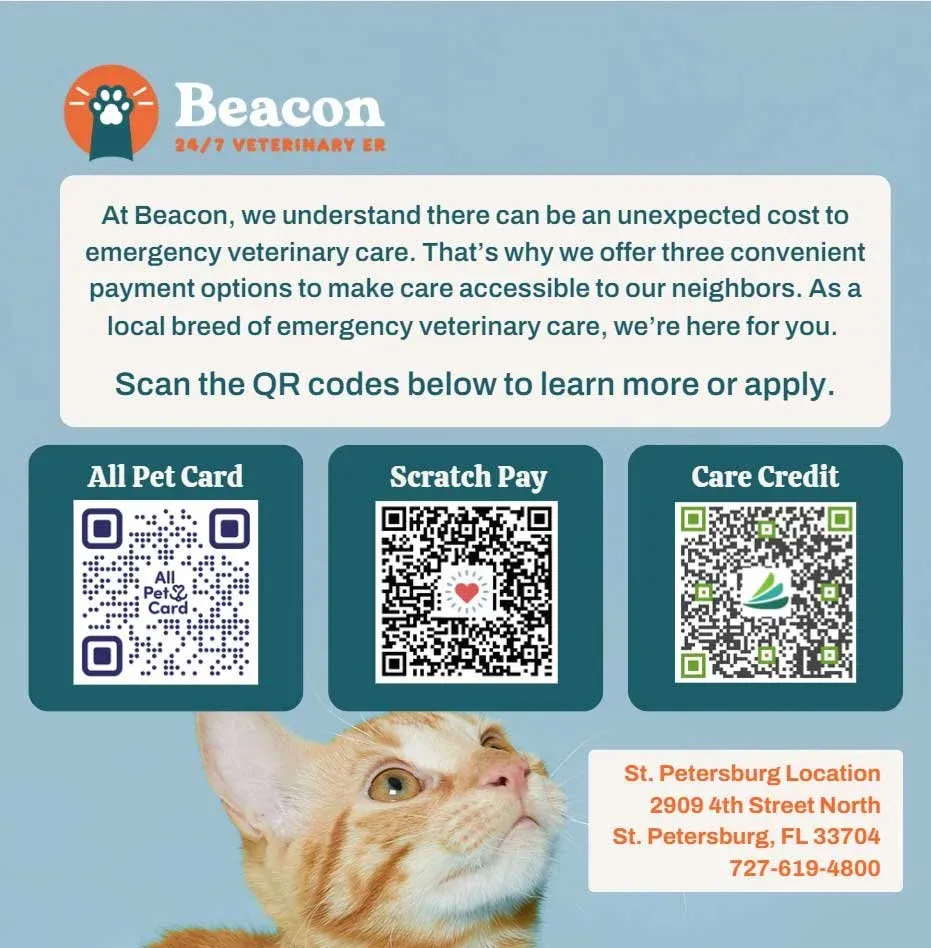As a dedicated pet parent, few situations are as distressing as a sudden illness or injury to your beloved companion. In these critical moments, knowing where to find an Emergency Veterinary Hospital Near Me can be the difference between a swift recovery and a heartbreaking outcome. Unlike routine vet visits, pet emergencies require immediate, specialized care available around the clock. This guide will walk you through identifying a true emergency, finding the right emergency vet, and preparing for an unexpected visit, ensuring you’re equipped to act quickly and confidently when your furry family member needs it most.
What Constitutes a Pet Emergency? Recognizing Urgent Signs
Distinguishing between an urgent situation and a minor concern is crucial for pet owners. While some issues might be managed at home or during regular vet hours, others demand immediate attention from an emergency veterinary hospital. Prompt recognition of these critical signs can save your pet’s life.
Common signs that warrant an immediate visit to an emergency vet include:
- Severe Trauma: Falls, car accidents, animal attacks, or any significant physical injury.
- Difficulty Breathing: Persistent coughing, choking, wheezing, or unusually rapid/shallow breathing. For less severe coughs, understanding home remedies for kennel cough in dogs can be helpful, but if breathing is truly labored, seek emergency care.
- Uncontrolled Bleeding: Especially from open wounds, nose, mouth, or rectum.
- Collapse or Loss of Consciousness: Any sudden weakness, inability to stand, or unresponsiveness.
- Seizures: Episodes of uncontrolled shaking, muscle spasms, or altered mental state.
- Severe Vomiting or Diarrhea: Especially if persistent, containing blood, or accompanied by lethargy. While some mild cases might respond to home remedies for dog vomiting and upset stomach, severe or prolonged symptoms are a clear emergency.
- Sudden Lameness or Inability to Bear Weight: Particularly if accompanied by pain or swelling.
- Ingestion of Toxins: Suspected consumption of poisons, medications, or dangerous foods.
- Extreme Pain: Whimpering, howling, aggression, hiding, or reluctance to move.
- Urinary Issues: Straining to urinate, inability to urinate, or painful urination (especially critical for male cats).
- Eye Injuries: Sudden redness, discharge, squinting, or visible trauma to the eye.
- Bloated or Distended Abdomen: Especially in large, deep-chested dogs, this could indicate bloat (Gastric Dilatation-Volvulus), a life-threatening condition.
- Difficulty During Labor: If your female pet is struggling to give birth.
If you observe any of these symptoms, do not hesitate to contact or head directly to an emergency veterinary hospital near me. A quick phone call to inform them of your arrival can help them prepare for your pet’s specific needs.
How to Find the Best Emergency Veterinary Hospital Near Me
When seconds count, having a plan is essential. Here’s how to efficiently locate and choose a reliable emergency veterinary hospital for your pet.
Search Online and Prepare a List
The fastest way to find an emergency veterinary hospital near me is often a quick online search. Use phrases like “24/7 vet near me,” “pet emergency clinic,” or “animal ER [your city/zip code].” Utilize mapping services to see the closest options and read reviews from other pet owners. Keep a list of 2-3 accessible hospitals saved in your phone or on your fridge.
 French Bulldog puppy on an examination table at an emergency veterinary hospital
French Bulldog puppy on an examination table at an emergency veterinary hospital
Key Factors to Consider When Choosing an ER Vet
Not all emergency clinics are created equal. When evaluating your options, consider these critical factors:
- 24/7 Availability: A true emergency hospital operates 365 days a year, day and night, including holidays. Confirm they are truly a 24/7 vet near me.
- Walk-in Policy: Many emergency clinics understand the urgency and don’t require appointments, allowing you to walk in with your pet immediately. This “no appointment needed” policy is a significant advantage in emergencies.
- Range of Services: A comprehensive emergency facility should offer:
- Critical Care & Hospitalization: For pets needing intensive monitoring.
- In-house Imaging & Diagnostics: X-rays, ultrasound, blood work for rapid diagnosis.
- Emergent Surgery: For injuries, bloat, or other conditions requiring immediate surgical intervention.
- Blood Transfusions: For severe anemia or blood loss.
- End of Life Care: Compassionate support when difficult decisions must be made.
- Experienced Staff: Look for hospitals staffed by experienced emergency veterinarians, veterinary technicians, and support staff who are trained in critical care. A skilled emergency veterinarian should always be on-site, even during off-hours.
- Patient & Pet Parent Comfort: An ideal emergency veterinary hospital prioritizes both the pet’s well-being and the owner’s peace of mind. Facilities that offer comfortable waiting areas, options to stay with your pet or drop them off for treatment, and empathetic communication can significantly ease stress during a difficult time. Ensuring your pet maintains general good health can sometimes prevent emergencies, so staying informed about topics like can worms be passed from dog to dog is also important.
- Locally Owned vs. Corporate: Some pet parents prefer locally owned and veterinarian-led hospitals, believing they offer a more personalized approach and potentially lower costs than larger corporate chains.
Location and Accessibility
While emergencies are unpredictable, knowing the physical address and best routes to your chosen emergency veterinary hospital near me can save valuable time. Consider how easily accessible the location is from your home, especially during heavy traffic times or late at night. Clear signage and adequate parking are also beneficial.
Understanding Emergency Veterinary Costs and Financing Options
Emergency veterinary care can be costly due to the specialized equipment, medication, and around-the-clock staffing required. It’s wise to be prepared for potential expenses. Many emergency veterinary hospitals offer or recommend financing options to help manage these costs.
Common financing partners include:
- Pet Insurance: If you have pet insurance, understand your coverage limits and deductible for emergency care.
- Veterinary Payment Plans: Some hospitals may offer in-house payment plans.
- Third-Party Financing: Companies like Scratch Pay and CareCredit provide healthcare financing options, allowing you to pay for services over time.
- Pet-Specific Credit Cards: These offer special financing for veterinary expenses.
Don’t let financial concerns delay life-saving care. Discuss payment options with the hospital staff as soon as possible.
Preparing for an Emergency Vet Visit
Being prepared can reduce stress and allow the veterinary team to help your pet more efficiently.
- Gather Essential Information: If time allows, bring any relevant medical records, a list of current medications, known allergies, and your regular vet’s contact information.
- Keep Your Pet Comfortable and Safe: Transport your pet in a secure carrier (for cats and small dogs) or on a leash. If they are in pain or distressed, they might react unexpectedly, so ensure their safety and yours.
- Stay Calm: Your pet can sense your anxiety. Try to remain calm and reassuring, which can help keep them calmer as well.
- Be Ready to Provide Details: Be prepared to describe your pet’s symptoms, when they started, and any specific events that occurred. The more information you can provide, the better the veterinary team can assess the situation. Maintaining a healthy pet also involves preventative care, so knowing about best worm flea and tick treatment for dogs can be part of your preparedness.
No pet owner wants to face a crisis, but being knowledgeable and prepared can make all the difference. Knowing how to find an emergency veterinary hospital near me and what to expect will help you navigate these challenging situations with confidence and provide your beloved pet with the best possible chance for recovery. For general skin health concerns that might cause discomfort but aren’t immediate emergencies, you can explore topics like my dog has dry flaky skin and scabs home remedy.
Conclusion
The health and safety of our pets are paramount. While we hope you never need one, having a trusted emergency veterinary hospital near me identified in advance is an act of responsible pet ownership. Prioritize understanding common emergency signs, researching local 24/7 facilities, and being aware of financial options. By being prepared, you can ensure that when an emergency strikes, your furry friend receives the prompt, expert care they deserve, giving them the best chance for a happy and healthy life. Always keep your pet’s emergency contact numbers readily accessible.
 Informational flyer for emergency pet services, showing financing partners and contact details
Informational flyer for emergency pet services, showing financing partners and contact details
References
- American Veterinary Medical Association (AVMA). (n.d.). Emergency and Critical Care. Retrieved from avma.org
- Pet Poison Helpline. (n.d.). Top 10 Pet Poisons. Retrieved from petpoisonhelpline.com
- Veterinary Emergency and Critical Care Society (VECCS). (n.d.). About VECCS. Retrieved from veccs.org
